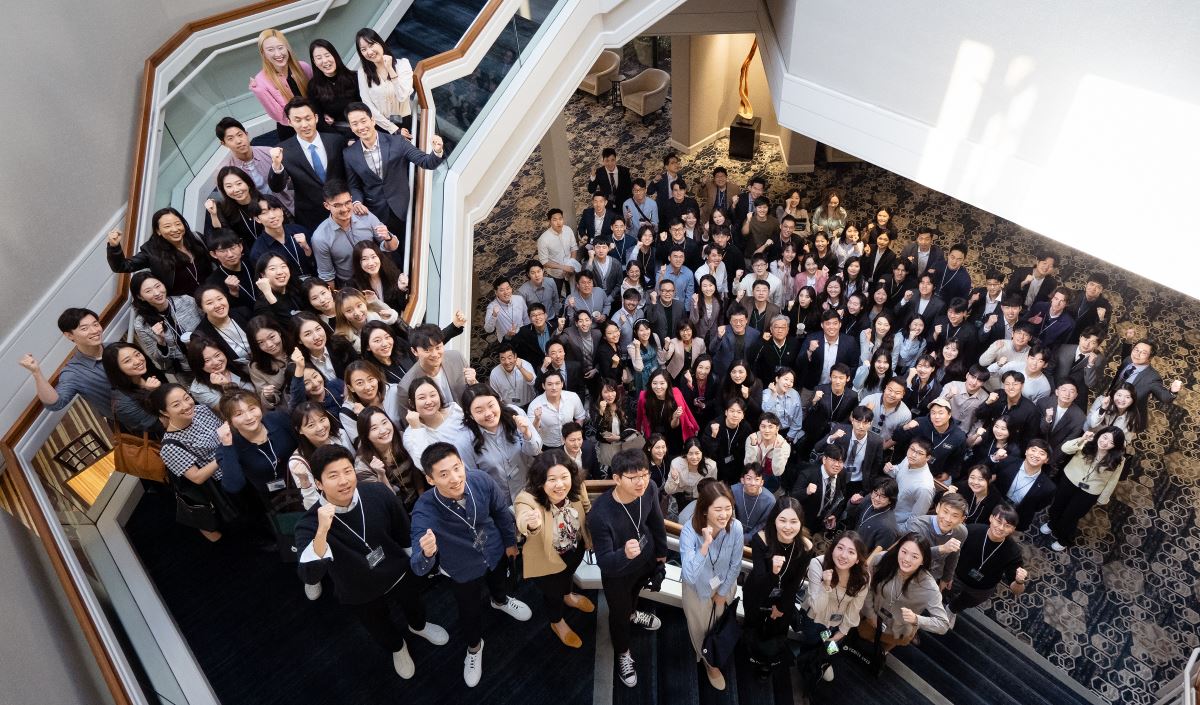Motivated to be Mindful: Research Project Leads to Unexpected Epiphany
Jessica Kim learns how mindfulness improves mental well-being in occupational therapy practitioners as well as patients.
Jessica Kim is planning to pursue a career in occupational therapy because she wants to help people through a stressful period of their lives. She’ll be working with patients recovering from illness or trauma. But a class she took at MCPHS taught her to think about something she'd given less consideration: her own stress and mental well-being.
The class—called Scholarship in Practice: Applied Designs and Methods—included a research project. Students designed small, single-subject studies to answer the question: How can mindfulness activities affect the health of graduate students? The project led Kim to realize that she needs to take care of herself to be fully present with patients. Now an evangelist for mindfulness activities, she was able to present her findings at the Ygnite conference in San Jose in January.
“I’ll be honest—even though I’m an OT student, when I was stressed, I didn't really have a specific coping mechanism to help me feel better, and it would just kind of pile up,” said Kim, who expects to graduate from the Master of Science in Occupational Therapy program in May 2023. “I feel like I never really had a solid exposure to mindfulness. There are apps and everything, but it's really hard to initiate yourself and have that motivation to try something new to get out of whatever you’re going through.”
Managing Stress
That changed over the course of the experiment. Each student chose a mindfulness activity to do for a certain amount of time each day and then took a self-assessment to measure state of mind. Some students chose simple breathing exercises or meditation activities conducted with the help of audio guides. Kim opted to take a daily walk to a nearby lake. She found it soothing to reflect and relax in a new, peaceful environment.
Professor of Occupational Therapy Douglas Simmons, PhD, added the project to the course after he noticed a disturbing trend: students were exhibiting extremely high levels of stress during the COVID-19 pandemic. He was struck by their scores on an anxiety assessment test: some of the lowest—indicating higher anxiety—that he’d ever seen.
“We started to see not only stress and anxiety, but also aspects of depression, really coming into play,” Dr. Simmons said. “Many of our students also became primary breadwinners for their family when COVID hit, and I think that variable of suddenly having to be the revenue generator for a whole family just added to the dynamic of stress.”
In the class, students come to appreciate the need to exercise the brain in addition to the body. And anxiety scores improved after they had consistently engaged in mindfulness activities.
Taking the Time
Kim was intrigued by the results and decided to take what she’d learned to the Ygnite conference, an annual event run by the Korean American Scientists and Engineers Association. She was the only occupational therapy student present.

“I had that responsibility of representing OT as a profession that serves a population of all ages, and delivering the value of OT myself,” Kim said. “I was not only able to talk about the research, but communicate what occupational therapy really is.”
She believes that mindfulness activities can help everyone. And healthcare professionals—especially occupational therapists—have a special obligation to embrace them.
“It's something that we tend to forget in the busy lives that we all live, not just including everyday demands, but also social expectations that we want to meet,” Kim said. “Being able to take time off and reflect and be conscious about your own body and mind is a very important practice.”
Three Mental Health Tips from Jessica
Check out these tips for some quick and simple ways to improve your state of mind.
Get some sun
“I've taken walks outside at night and it's good, but out in the sun is way better. A lot of things distract you when you’re out in the sunlight with nature.”
Do what makes you happy
“Listen to music, or take your earphones off for once. If you're always listening to lectures, that's not so fun.”
Change your environment
“If you're stuck in the same room studying every day, and hope that the stress is going to go away once the assignment or the test is done, it’s not going to help. Once you move it helps refresh your mind.”
Featured Connections
Schools
Programs
People
More University News
MCPHS 2025: A Year in Photos
Our photos from 2025 show connection, community, and celebration.
‘Purpose and Passion’: MCPHS Manchester Students Showcase Research
From pharmacy deserts to Gen Z learning strategies, student researchers explored timely issues shaping the future of healthcare.
This is MCPHS: ‘It’s Really Motivating When You Find the Thing That’s Right for You’
Health Sciences major Emma Borkosky shares her thoughts on getting involved on campus and the formative experiences that shaped her journey into occupational therapy.
Two Minds, One Mission: Bridging Psychology and Medicine
MCPHS researchers explore how mental wellness impacts physical health.

